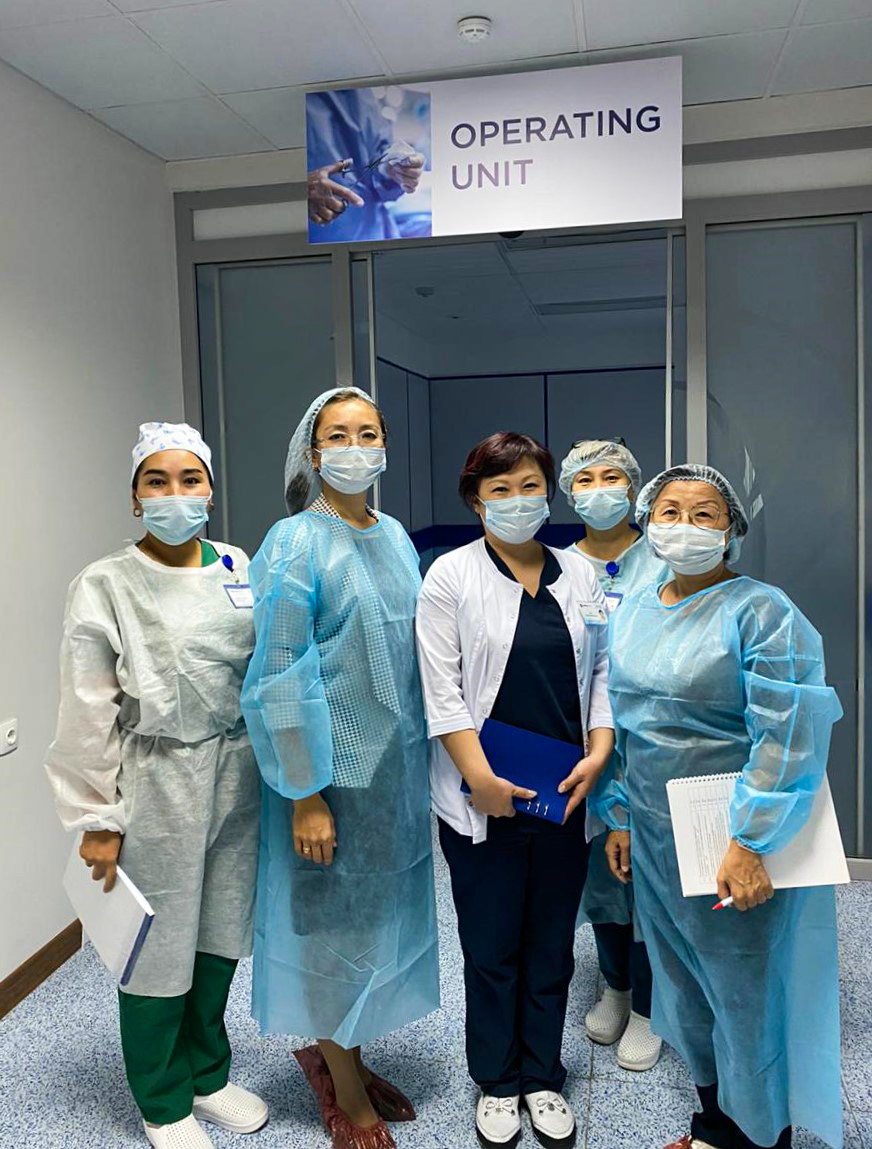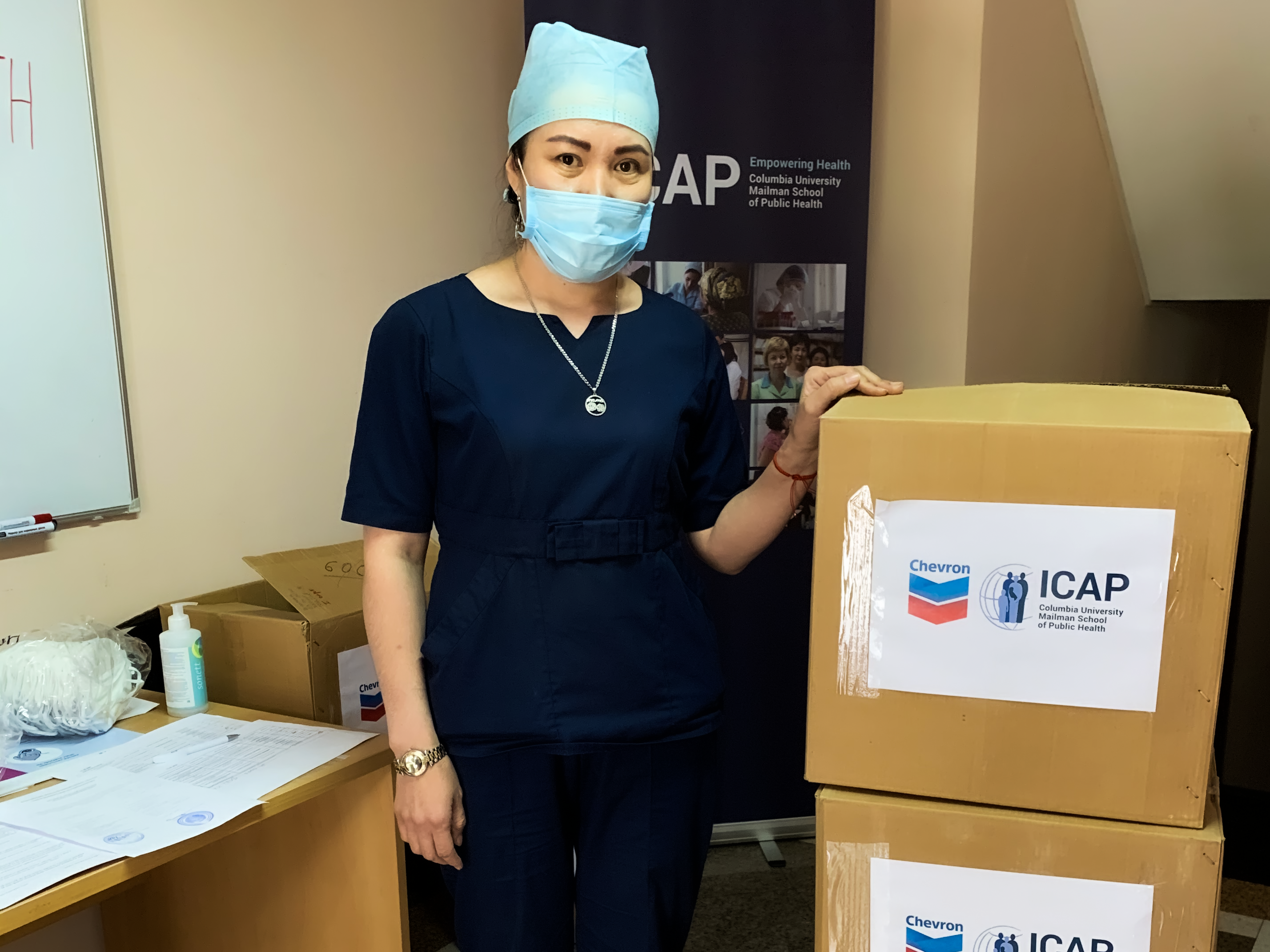In Kazakhstan, ICAP at Columbia University is uncovering challenges that encumber infection and prevention control (IPC) processes throughout the country – and helping to develop strategies for a way forward.
In collaboration with the National Public Health Center (NPHC) of the Ministry of Health in Kazakhstan, ICAP in Kazakhstan conducted an IPC analysis in 78 hospitals across the country, identifying several priority areas for improvement, and developed a follow-on report in Kazakh and Russian. The analysis was conducted as part of an initiative funded by Chevron Corporation to support national efforts to improve IPC systems in Kazakhstan.
The analysis showed that insufficient attention is being paid to the area of IPC at health facilities and that there are limited qualified personnel, such as epidemiologists and infection control nurses, to carry out such efforts.
“The Ministry of Health of the Republic of Kazakhstan is developing a national roadmap to strengthen its IPC program, but until recently has lacked a country-wide assessment of performance gaps and implementation challenges faced by hospital staff,” said Anna Deryabina, MD, DrPH, MScIH, ICAP regional director in Central Asia. “This study is the first formal and systematic assessment of IPC core components encompassing a large sample of multi-specialty hospitals in Kazakhstan. Results of this situational assessment highlighted key areas in need of additional focused support, which will help to guide the development of effective IPC improvement strategies and improve coordination of capacity-building efforts.”
The analysis also demonstrated a lack of guidelines, including Standard Operating Procedures (SOP) and internal policies, on IPC issues and solutions across all health facilities. Clear systems for mandatory training and annual professional development on IPC did not exist for health care workers. The analysis showed that health care workers across the 78 hospitals had limited opportunities to receive mentoring or exchange experiences with other specialists generally.
In addition to highlighting hospital personnel challenges, the analysis also showed that health facilities throughout Kazakhstan have limited access to the tools needed for improved IPC, such as surveillance mechanisms for health care-associated infection (HAI). Standardized tools for data collection, microbiological analysis, and antimicrobial resistance measurement are in inadequate supply. Implementation of effective triage strategies for efficient patient flow also remains an issue at hospitals and was especially exacerbated by the COVID-19 pandemic.

After assessing the major IPC challenges within Kazakhstan, ICAP developed a series of recommendations that can be utilized by national health programs to improve IPC plans in the country. Such recommendations include increasing capacity of health care workers through the development of special IPC training courses, increasing funding to put toward IPC measures, and reconstructing outdated or insufficient buildings for improved hospital infrastructure.
“We completed the first round of a unique training course for epidemiologists, which lasted three and a half months,” said Zhanar Kalmakova, chairman of the NPHC Board. “Trainees visited leading scientific centers, clinics, and hospitals of the capital city to acquire knowledge and experience. The development and implementation of such a training course will undoubtedly contribute to the improvement of infection control and infection prevention processes and will create an incentive for further efficient work.”
Karlygash Oralova, MD, an epidemiologist in Kazakhstan with 27 years of experience and a participant of the analysis, said that now is an important time to act on such change.
“I was convinced that if the first head of the hospital [hospital director] is very competent, then he clearly understands that infection control is the cornerstone of quality medical care,” he said. “But it’s also great that there are a lot of interested young professionals there; I haven’t seen anything like that for a long time.”
About ICAP
A major global health organization that has been improving public health in countries around the world for nearly two decades, ICAP works to transform the health of populations through innovation, science, and global collaboration. Based at Columbia Mailman School of Public Health, ICAP has projects in more than 30 countries, working side-by-side with ministries of health and local governmental, non-governmental, academic, and community partners to confront some of the world’s greatest health challenges. Through evidence-informed programs, meaningful research, tailored technical assistance, effective training and education programs, and rigorous surveillance to measure and evaluate the impact of public health interventions, ICAP aims to realize a global vision of healthy people, empowered communities, and thriving societies. Online at icap.columbia.edu








